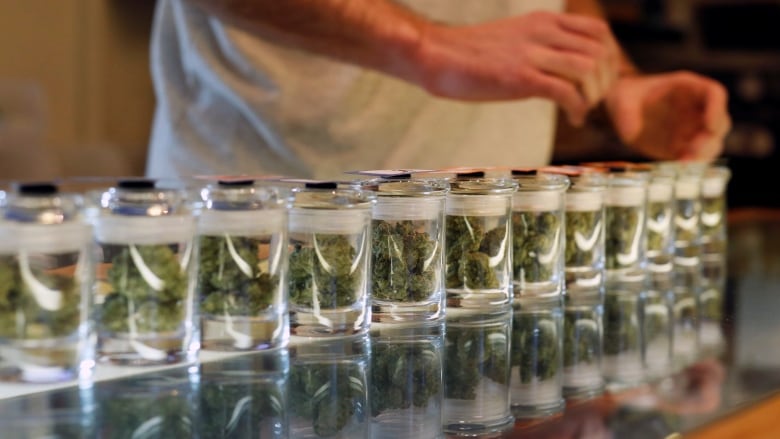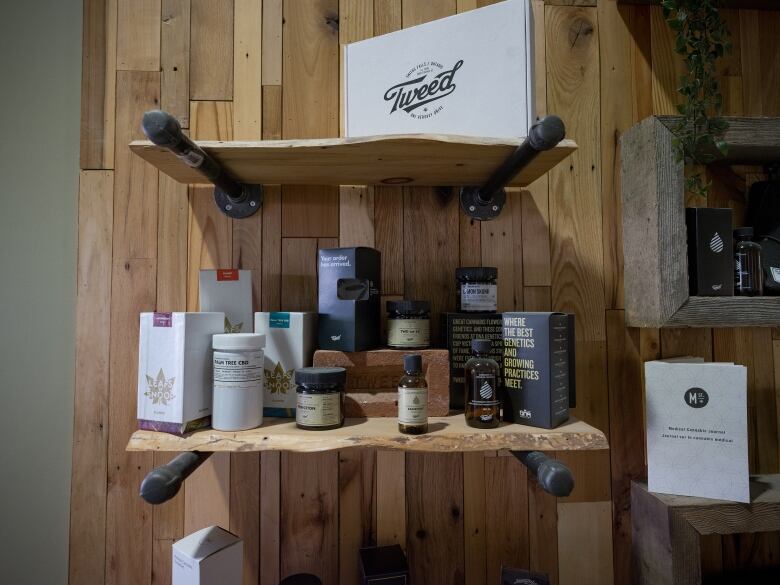New details on training for Cannabis NB employees
Product knowledge, customer service skills will be key for unionized Cannabis NB jobs

With at least 20 Cannabis NB retail outlets scheduled to open across the province in July 2018, the search for qualified New Brunswick budtenders is on.
If you're not au fait with the lingo, that's like a bartender, only with cannabis buds.
Somewhere between a sales rep and a sommelier, their job is to recommend different varieties of the plant, weigh it out, give advice on how to consume it and make sure store operations are in line with provincial and federal regulations.
On Jan. 19, the government of New Brunswick started rolling out its plan to train its unionized workforce of budtenders.
"Ensuring Cannabis NB staff receive comprehensive training is an important part of ensuring recreational-use cannabis is introduced in a safe manner," said a Department of Finance spokesperson.

To make that happen, NB Liquor and the Department of Finance announced a partnership with Canopy Growth to develop "a budtending course," said Canopy president Mark Zekulin.
But there's one hitch: most law-abiding citizens in New Brunswick aren't, shall we say, experienced.

Product knowledge, customer service
Canopy certainly has a lot of expertise in selling cannabis.
The company, which bills itself as the world's largest regulated producer of the plant, runs seven grow sites and is renovating an eighth. The 40,000-square-foot facility in Fredericton's Vanier Industrial Park is slated to open in 2019.
In September, Canopy signed an agreement to supply New Brunswick with four million grams of cannabis products with an estimated retail value of $40 million in the first year.

It's also getting into the training business.
The program for retail employees will consist of four online modules, plus self-guided and classroom components ranging in length from two-and-a-half hours to several weeks, Zekulin said. Like liquor store workers, employees will likely receive training to identify potentially intoxicated customers to take appropriate steps.
A spokesperson for the Department of Finance confirmed the minimum age to work at Cannabis NB will be 19.
It's certainly an interesting time that we're in.- Mark Zekulin, president of Canopy Growth
It will be detailed enough, Zekulin said, to bring even a total cannabis newbie up to speed.
Most important for prospective workers, he said, is "an open mind and having enough knowledge [...] to recognize that this is a very varied product," said Zekulin. Unlike alcohol, different types of cannabis have wildly different highs — or different "effect profiles," as he put it.
"Some [strains] will be energetic, some will be more sedative," he said. Budtenders will need to "embrace the fact that all of these varieties are different."

"A huge part of a successful legalization of cannabis is to make sure that people have the right information to make the right choice and have a positive experience," he said.
Freshly-minted budtenders will receive a certificate upon completing the course, he said.
Neither the province nor Canopy Growth would comment on the dollar value of the government's training partnership.
Union 'shocked'
Jamie Agnew is the president of CUPE Local 963, which represents liquor store workers in the province and will, after July, also be the bargaining unit for Cannabis NB workers.
In New Brunswick, the average salary for a liquor store retail associate ranges from $16.50 to $24 per hour. An average liquor store, according to Agnew, has between eight and ten employees — but a Cannabis NB location could need more or less than that.
He said he was "shocked" by the training announcement, given his last meeting with representatives of the Crown corporation that will oversee legal cannabis was "back in October."
"I've been in the business for 25 years, so I know what it takes to sell a product, but this is different," Agnew said. He would like to be able to give his employees more informed answers to their questions on NB Liquor's role in selling cannabis.
Agnew said the union will be meeting with Cannabis NB representatives "in the coming weeks."
It's unclear whether NB Liquor will be shuffling the ranks of its retail workers to staff Cannabis NB locations.
Such a plan could conceivably work, according to Zekulin, who said the jobs require similar customer service skills, and detailed familiarity with the product.
"It's akin to a wine. It's akin to a whiskey," he said.
Once-illegal skills needed
An obvious challenge for the new, regulated industry is that people who have spent years growing cannabis, selling it, or working at black-market dispensaries — aka the people who might be most qualified to work with it now — have been operating outside the law. Many have even been charged with trafficking and possession.
In the old world order, a drug charge might have dashed one's hopes for a job at a government-controlled agency.
Canopy Growth can't speak for NB Liquor, Zekulin said, but his company is certainly open to hiring people who have been involved in the illegal industry.
"We certainly do criminal background checks on all our staff," he said, "[but] we also have plenty of folks who were the early founders of compassion clubs and who were early activists."
"We have people on our team who have disclosed those backgrounds and bring a wealth of knowledge that we're happy to use."
NB Liquor would not disclose whether a criminal background check will be required for Cannabis NB employees, saying only that it would follow Health Canada's recommendations.
'Never had anything like this'
If all goes well, the training could also be exported to "other provinces, or other countries," Zekulin said. Canopy is also developing training for dispensary employees on Prince Edward Island.
But New Brunswick's comprehensive partnership is "groundbreaking: we've never had anything like this," he said.
Given the unique training and staffing requirements, the Crown corporation might need to get the ball rolling on the hiring process soon.
While the recruiting is up to NB Liquor, Zekulin said, "I would think within the next couple of months they'll want to have their first staff and locations in mind."
Given the enthusiasm the Gallant government has shown for legalization, "if all the provinces, I'm betting that New Brunswick will certainly be ahead of the curve and ready to go," Zekulin said.
"It's certainly an interesting time that we're in."
Correction
Due to incorrect information provided in an interview with Mark Zekulin, a previous version of this story stated intoxication training for Cannabis NB workers would be provided by MADD Canada. It is not known at this time who will provide the training.

